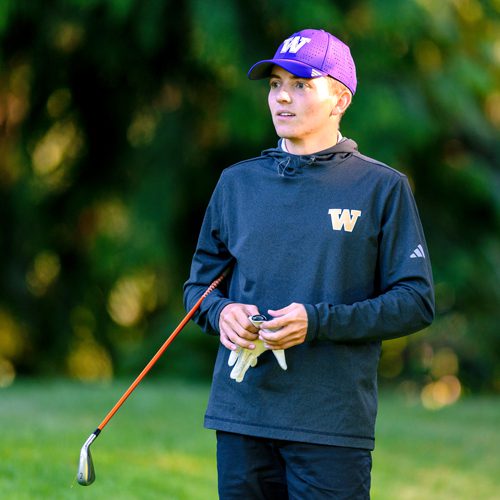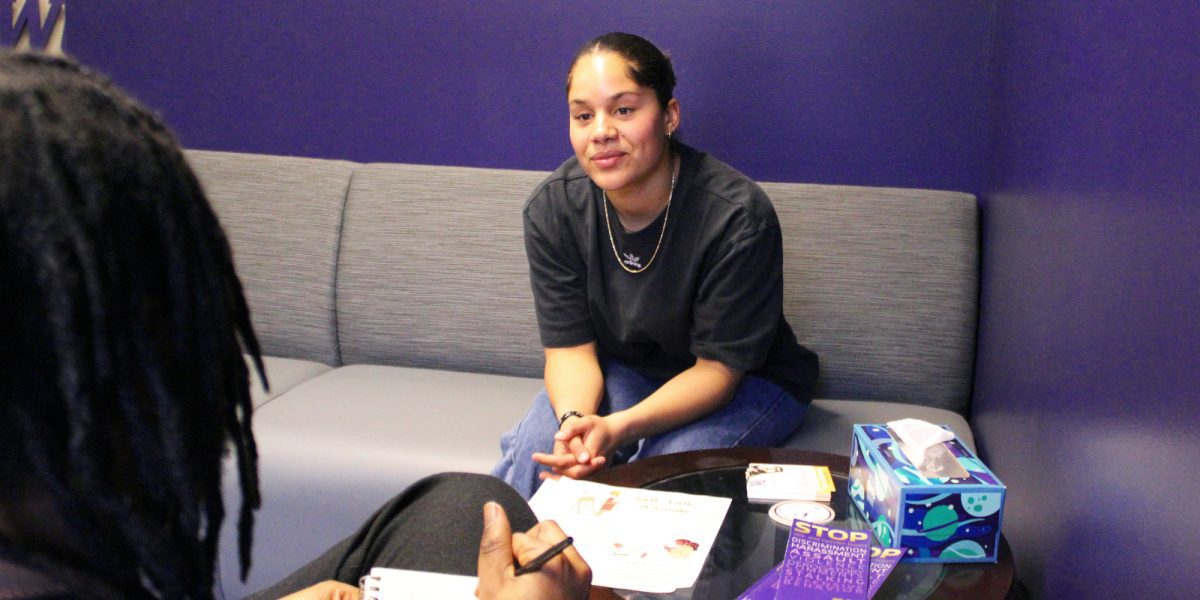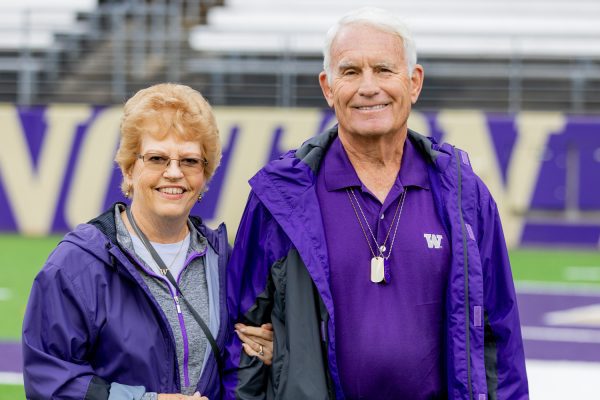 Drew Warford couldn’t sleep. He’d forget to eat. And he began having panic attacks, even on the golf course.
Drew Warford couldn’t sleep. He’d forget to eat. And he began having panic attacks, even on the golf course.
“I was the only Washington kid on the team, and I put a lot of pressure on myself to perform well. I felt I was letting people down,” recalls the lifelong Husky fan who grew up in Snoqualmie and whose dad also golfed at the UW. “I had so much social anxiety even going to practice or to work out in the gym. I got depressed. It was overwhelming.”
At first, Drew says, he’d tell himself: “Just get over it. You’re being soft. You can do this on your own.”
Then, he saw a TV show where a character noted that the strongest people are the ones who know when to ask for help. He talked to his trainer who referred him to the Athletic Department’s mental health services.
“I learned about the deeper level of science behind anxiety, why it happens and when it happens, so I could prepare when I’d know it was coming,” explains the senior communications major. “Counseling has been awesome. It’s helped me 100 percent. I’ve progressed to the point where I can deal with it on my own, and I still see my therapist every three weeks or so.”
Drew advocates therapy for student-athletes who are feeling pressured.
“A lot of people are still embarrassed about it. I was too for a while. I felt like I was the only one going through this and that no one understood. But you’re not alone,” he encourages. “It’s normal to feel this way, especially being an athlete at a major university where there’s so much pressure on you. Having anxiety means you care about what you’re doing not just in your sport but in your community. I feel like you can turn it into a positive and that’s what I’ve done.”
Demand skyrockets among today’s youth
According to Mike Dillon, who oversees mental health services for the Athletic Department, seven out of 10 students entering college have already received some sort of counseling. He says the stigma around mental health — especially among athletes — has diminished for many reasons, including high-profile Olympians like swimmer Michael Phelps and gymnast Simone Biles who have publicly shared their experiences.
“It is still hard to be vulnerable and say you need help,” Mike explains, “but this generation is generally more aware of mental health and more at ease talking about it.”
When Mike started working for the Huskies in 2007, the Department offered no internal mental health services and relied on the University’s counseling center. Today, donors’ gifts have fueled incredible improvements. To meet the unique pressures and issues faced by student-athletes, the Department’s mental health team now includes three Ph.D. psychologists, a licensed mental health counselor (LMHC), and a carefully curated external network of diverse therapists.
The team has created different pathways to make it easy for student-athletes to learn about and seek out help. They provide direct contacts to practitioners; have introduced a mental health and wellness app called AthleteTalk; hold mental health discussions and workshops with teams; and are bringing in trained interns and peer advocates to help deal with demand.
They’ve also increased their emphasis on recruiting practitioners of color.
“I bring relatability,” notes Keino Miller, PhD., a psychologist of color. “You don’t have to over explain some things. Even though we don’t come from the same types of neighborhoods or upbringings, there’s a familiar sense of the Black experience. We can be free and express ourselves.”
Student-athletes seek help for a multitude of issues, Dr. Miller says: “Decreased motivation, a lack of school-life-sport balance, interpersonal conflicts with family, struggles with perfectionism. We let them know that you’re allowed to make mistakes. You’re allowed to feel your feelings.”
Therapy can be intimidating, but worthwhile in the end
 Volleyball player Emoni Bush grew up on an Aboriginal reservation on Vancouver Island, a small and insular community where everyone considered each other family. Leaving for the UW “was a big deal for the tribe back home, almost unheard of, and definitely scary for me.”
Volleyball player Emoni Bush grew up on an Aboriginal reservation on Vancouver Island, a small and insular community where everyone considered each other family. Leaving for the UW “was a big deal for the tribe back home, almost unheard of, and definitely scary for me.”
Emoni excelled on the court in her first two seasons with the Huskies. Her junior year, a UW therapist who she had met the previous summer at the national Black Student-Athlete Summit spoke to the team about the Department’s mental health resources.
“I’d just found out that I had to have shoulder surgery and would be medically red-shirted and miss my whole junior year,” says the real estate major. “I’m a pretty closed-off person, and I wasn’t sure about going to a therapist. That first session, I was nervous and didn’t know what to expect. But it was a lot easier than I anticipated.”
She dealt with feeling guilty about “giving up” and letting her team down by choosing surgery rather than risking playing through the injury.
“After my surgery, I dealt with a lot of identity issues,” she says. “I’ve never not had a sport or something to do for my entire life. I did not know what to do with myself and my time. Therapy helped me figure myself out, who I am without volleyball.”
She encourages other student-athletes “to take that leap” into counseling.
“Give it a try and you’ll be hooked,” Emoni states. “You’ll see how beneficial it is. You’ll feel like a weight has been lifted off your shoulders.”
You can support student-athlete mental health with a gift to The Competitive Edge Fund. Learn more and give today.










